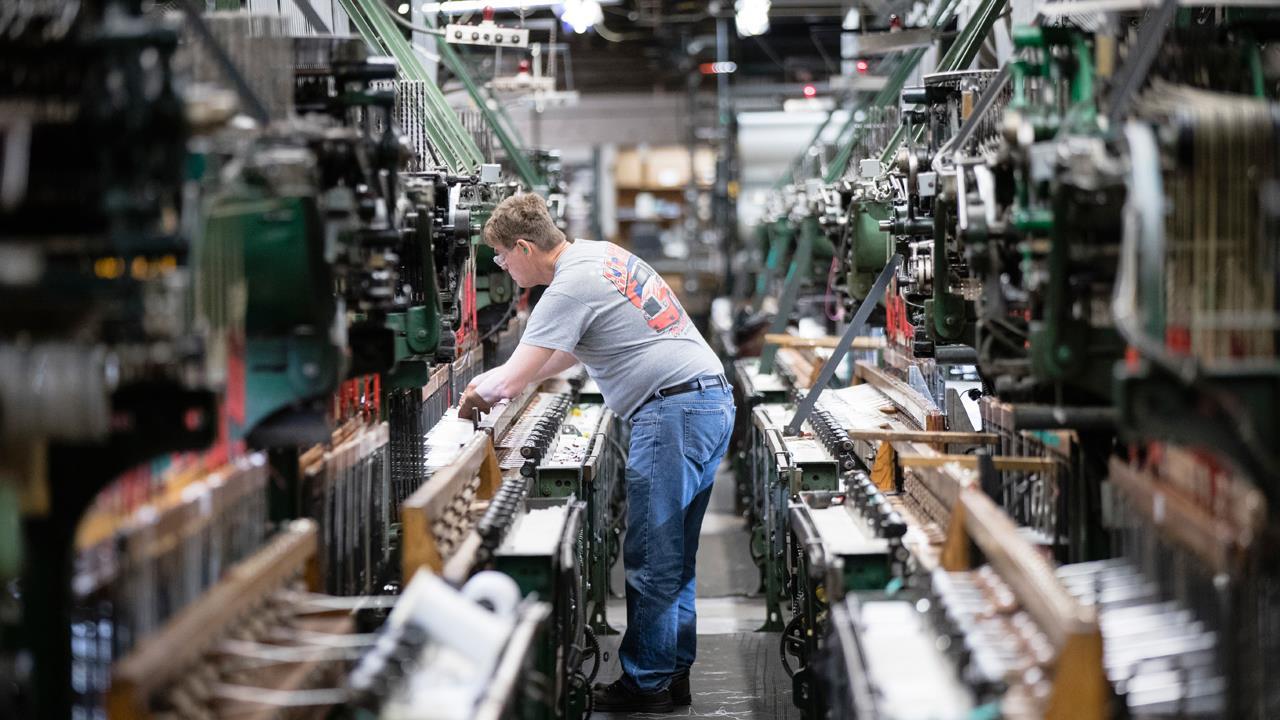Pay is rising for these lower-wage jobs
Bank tellers and baristas are among the workers that may see a nice bump in their paychecks, according to a new survey that shows wage growth among U.S. workers is on the rise.
“U.S. workers in traditionally lower-wage jobs are among those seeing the biggest wage bumps in August,” Glassdoor Chief Economist Andrew Chamberlain said. “Roles ranging from maintenance worker and bank teller to barista and bartender are seeing big pay gains as the healthy job market translates into more pay across many corners of the labor market.”
As for those gains, bank teller (8 percent), maintenance worker (7.5 percent), bartender (6.5 percent), property manager (6.1 percent) and financial adviser (6 percent).
Glassdoor said lower-paying roles and blue collar jobs tend to see bigger gains in pay growth as unemployment – now at 3.9 percent – sits at historic lows, a trend that bodes well for future wage growth.
“As the U.S. labor market shows no signs of letting up, we expect wages to keep climbing,” Chamberlain noted.
Financial professionals also saw higher wages as Americans sorted out their finances following the implementation of the new federal tax code, while a rising stock market also benefitted employees in that field, the job site added. The S&P 500 and the Nasdaq Composite are trading at record levels.
Nationally, wages grew 2.4 percent this August compared to the same period a year ago with the median base pay rising to $52,461, the fastest growth so far this year and the highest since May 2017, according to the job and recruiting site’s latest Local Pay Reports, which also covered how certain cities are paying.
San Francisco saw the largest pay growth, up 3.2 percent year-over-year to nearly $70,000. Cities with an increasing tech presence – like San Francisco and other Silicon Valley locales – are seeing pay grow faster, according to the survey.
Los Angeles saw wages rise 2.6 percent to slightly more than $61,000 in the month, while pay in Philadelphia and New York City grew 2.5 percent to $55,859 and $62,338, respectively. Wages in Atlanta increased 2.4 percent to more than $54,200.
Not every professional is seeing a wage bump, however. In fact, some are even experiencing the opposite. The occupations which saw the slowest pay growth included network engineer (down 6.7 percent); insurance agent (down 4.7 percent); warehouse associate (down 2.3 percent); project manager (down 1.9 percent) and physical therapist (down 1.5 percent). The job site noted that professions such as insurance agents are in less demand due to the increasing accessibility to automation tools.
But, jobs with the highest pay growth aren’t always ones that have the highest earning potential, according to Glassdoor. The survey found that some of the highest paying jobs include pharmacist at about $125,600, up 2.1 percent year-over-year; solutions architect at approximately $103,800, up 2.5 percent year-over-year; attorney at more than $99,400, up 4.2 percent year-over-year, data scientist at more than $97,364, up 1.3 percent year-over-year and product manager at more than $93,300, up 3.1 percent year-over-year.
Still, wage growth in the United States, according to the Bureau of Labor Statistics, remains stagnant, with average hourly wages rising just 7 cents in July and growing 2.7 percent over the same period a year ago.
The trend continues to puzzle policymakers.
“I certainly would've expected wages to react more to the very significant reduction in unemployment that we've had, as I mentioned from 10 percent to 3.8 percent,” Federal Reserve Chairman Jerome Powell said during the Q&A session covered by FOX Business following the FOMC’s July meeting. “In a world where we're hearing lots and lots about labor shortages – everywhere we go now we hear about labor shortages – but where's the wage reaction?”
On Friday, the August jobs report is expected to show employers added 195,000 workers during the month and unemployment is seen falling to 3.8 percent, according to estimates tracked by Econoday.




















